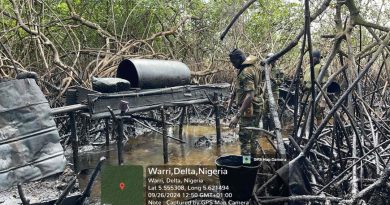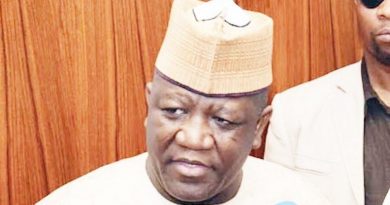Ogun Govt Reaffirms Commitment To Water Sector Development
The Ogun State Government has reiterated its unwavering commitment to provision of portable water across the state, as a way of prioritizing the welfare of the citizens.
Speaking during a recent facility tour of water schemes in the Yewa area, the Special Adviser to the Governor on Sustainable Development Goals (SDGs) and Water Resources, Hon. Damilola Otubanjo, emphasized that access to clean, safe water is a basic human right and must not be influenced by zoning politics.
“Our focus is on service delivery,” she said. “Water is essential to life, public health, and economic stability. People face significant challenges accessing potable water, and our mission is to ensure water reaches every part of Ogun State—regardless of political alignment”, she said.
Hon. Otubanjo explained that the visit to the Ilaro-Yewa Axis was aimed at assessing how to improve water infrastructure, including increasing pump capacity to extend coverage to more communities.
She also commended the Ogun State Water Corporation team, describing them as dedicated and vibrant.
“We have a strong team. What they need is the right motivation and improved working conditions. My role is to advise the Governor on immediate and strategic interventions to restore public confidence in water service delivery,” she added.
She reaffirmed that all decisions regarding water projects are based on need, technical viability, and the potential for impact—not politics.
“As we continue implementing the Ogun State Water Supply Master Plan, the Governor Dapo Abiodun’s administration remains people-focused. Our priority is ensuring every citizen has access to clean water, irrespective of location or political leaning,” Otubanjo stated.
Accompanying the tour, Consultant on Water, Alhaja Muinat Jaji, conducted assessments at key facilities including the Ibooro Borehole Scheme, Ajilete Package Treatment Plant, Owode Yewa Borehole Scheme, Ifo-Akinsinde Papalanto Water Scheme, Ella Water Scheme, Ilaro Reservoir, and the Ilaro Booster Station.
“The goal is to evaluate each scheme’s condition and determine whether to rehabilitate or replace them based on cost and effectiveness,” Otubanjo said.
“Some schemes are operational or easily restorable, like Papalanto and Ibooro, while others like Owode Yewa require major work. In some cases, building new solutions may be more practical than reviving old systems.”
She emphasized the importance of the tour in crafting a comprehensive action plan to provide lasting solutions to the state’s water challenges.




